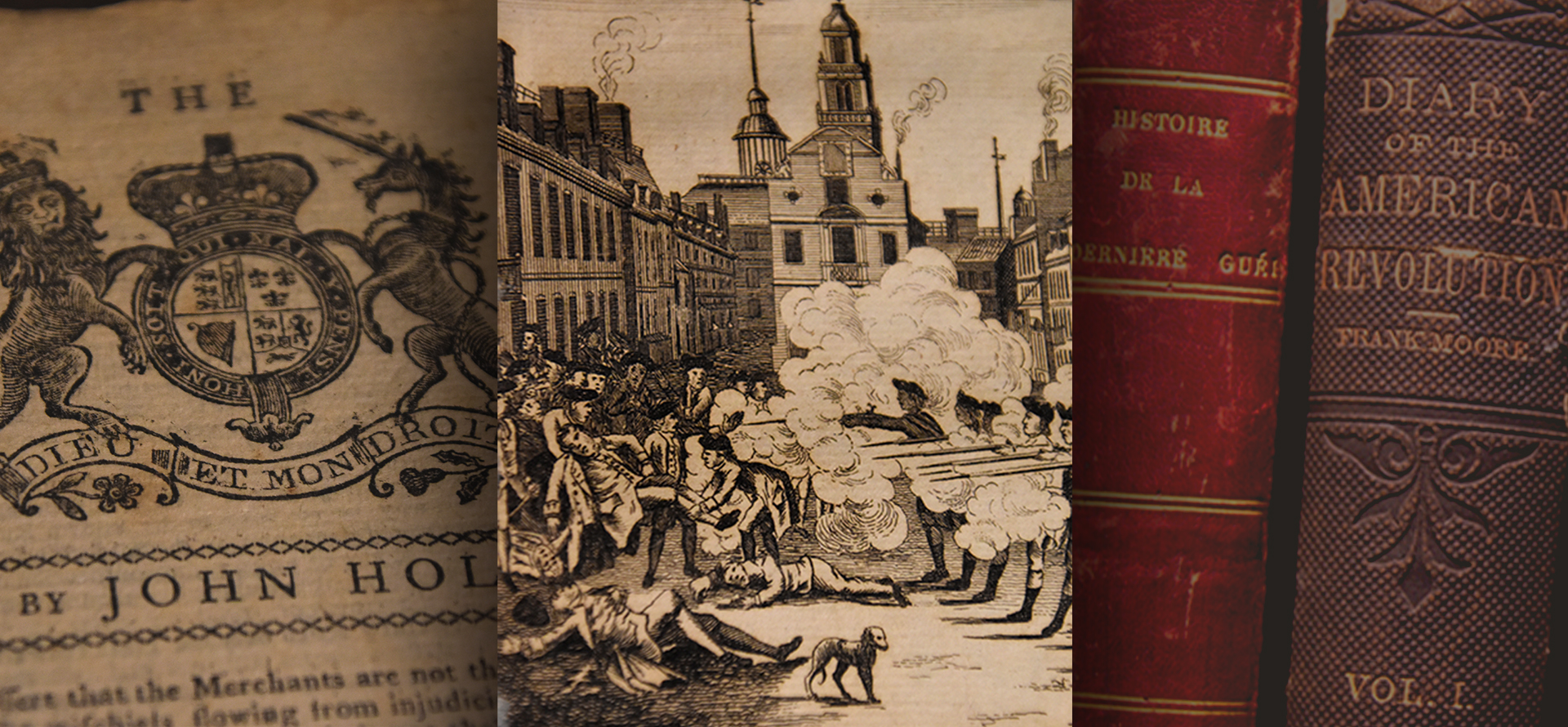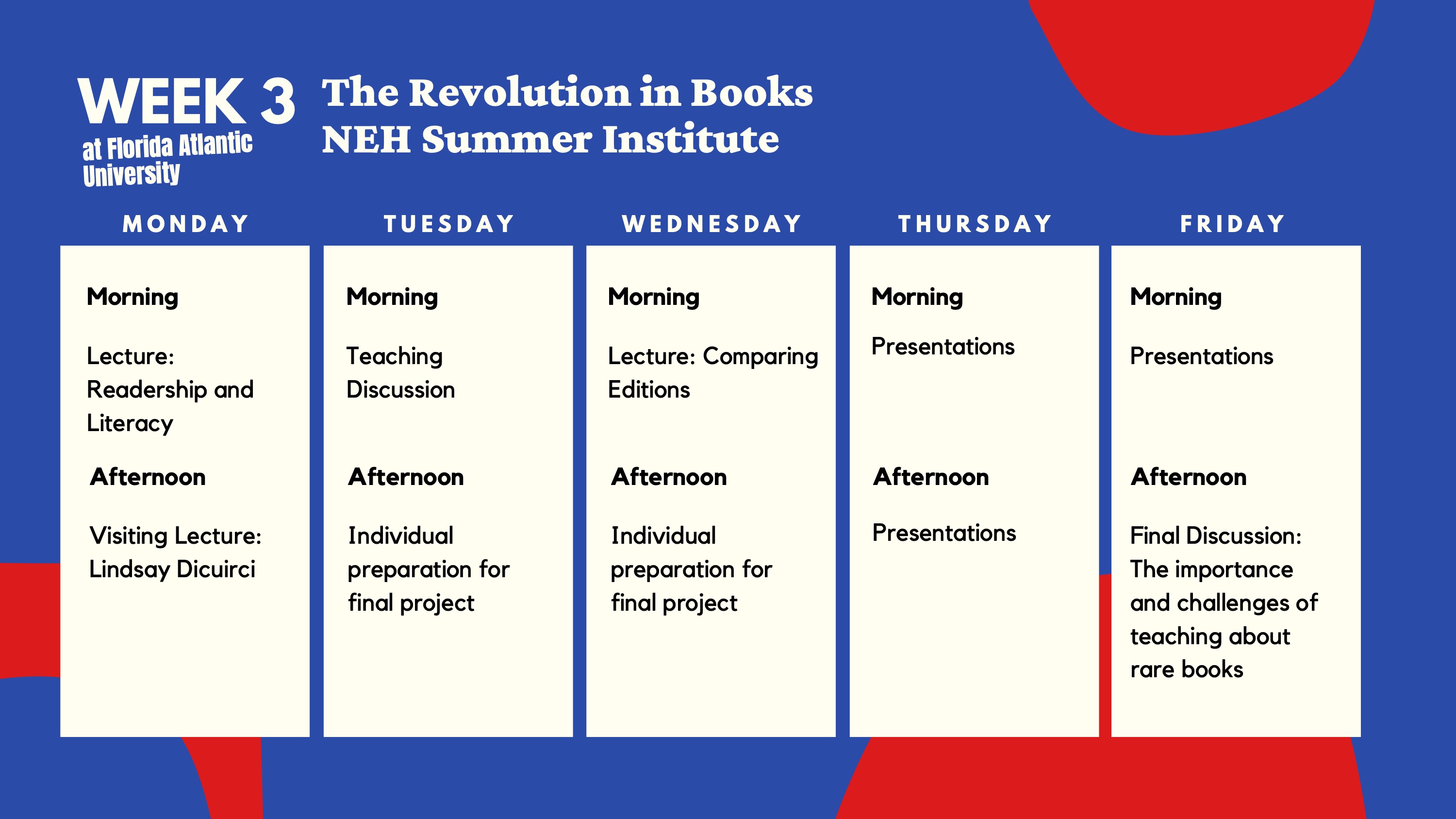Schedule
June 6-24, 2022 Institute (3 weeks, in person at FAU)
August 4th and 5th, 2022, mini-conference (online)
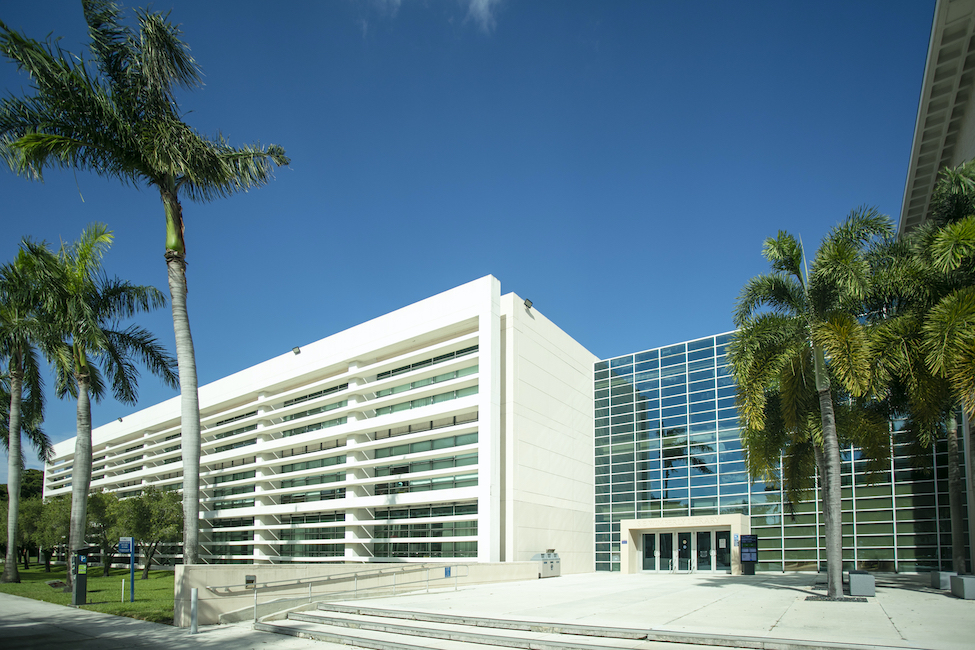
We will meet in the S.E. Wimberly Library at Florida Atlantic University. Many of the sessions will involve extensive use of the Spirit of America Collection, which is made up of over thirteen thousand items, with a significant portion from the period of the American Revolution. These range from understudied sermons to well-known books and pamphlets that helped to shape American history. These items are preserved in a variety of kinds and qualities of bindings, making them a great source for discussing the construction of books as objects. Summer scholars will also use the printing presses and paper-making resources in the Jaffe Center for Book Arts to get direct experience of book production from start to finish.
Throughout the Institute, participants will develop and workshop new ideas about how to teach the history of printing and the history of the American Revolution that draw on the insights gained from their summer study.
What to Expect
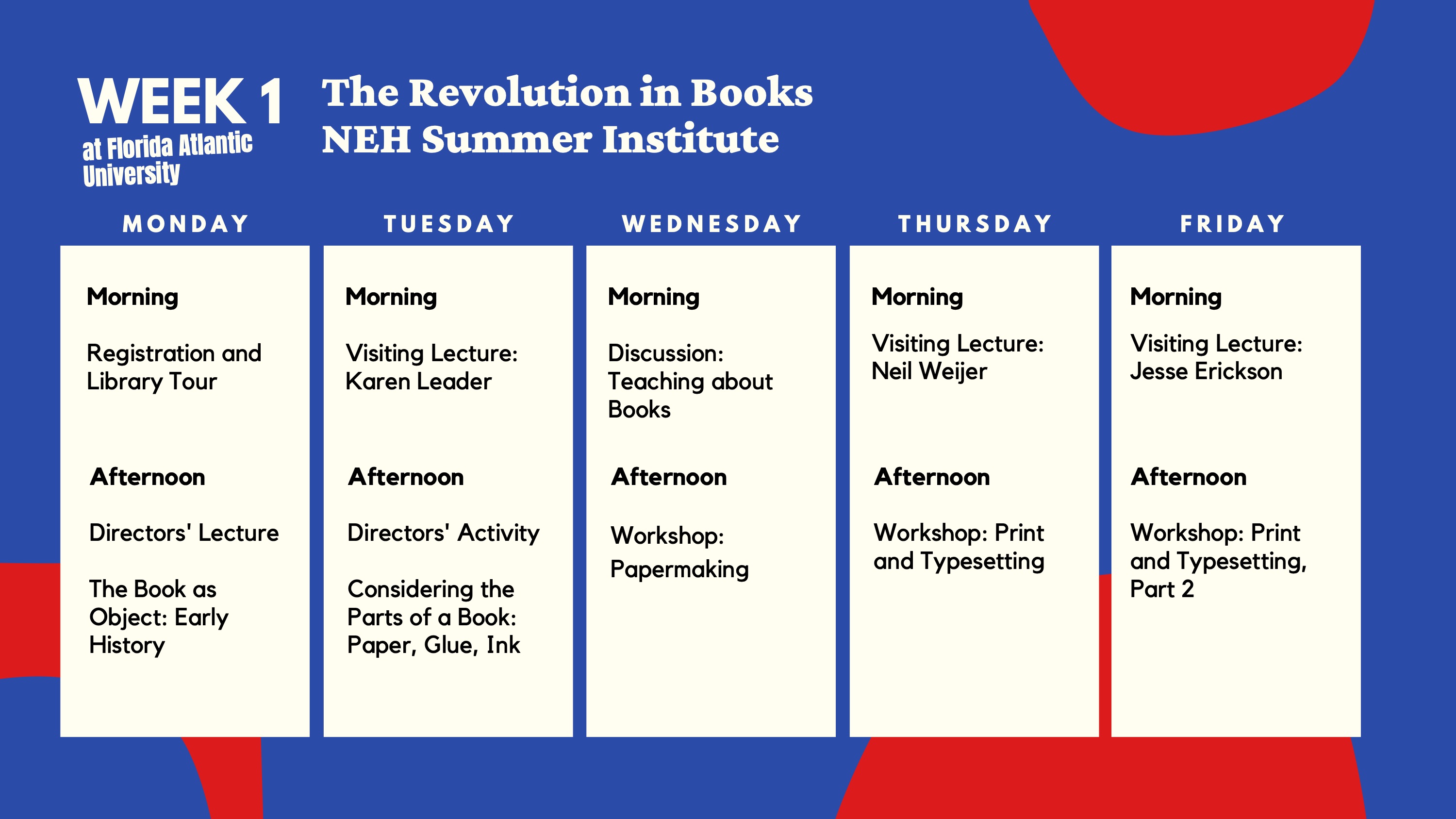
Week 1
The first week of the Institute focuses on understanding the book as a historical object, through a combination of theoretical and practical learning. Participants will deepen their understanding of the process by which texts were made during the Revolutionary period through a series of hands-on workshops on printmaking and typesetting. Summer scholars will be able to make use of a variety of paper and fonts, developing an understanding of the choices made by printers and the impact of those choices. These practical experiences combined with the readings and discussions with experts will lay the foundations for the weeks to follow and for participants to teach the history of books themselves. As the first week of the institute closes, scholars will reflect on the complexity of Revolutionary-era printed materials and their production. The cohort will begin to think about and discuss how they might present the history of these materials in their own classrooms.
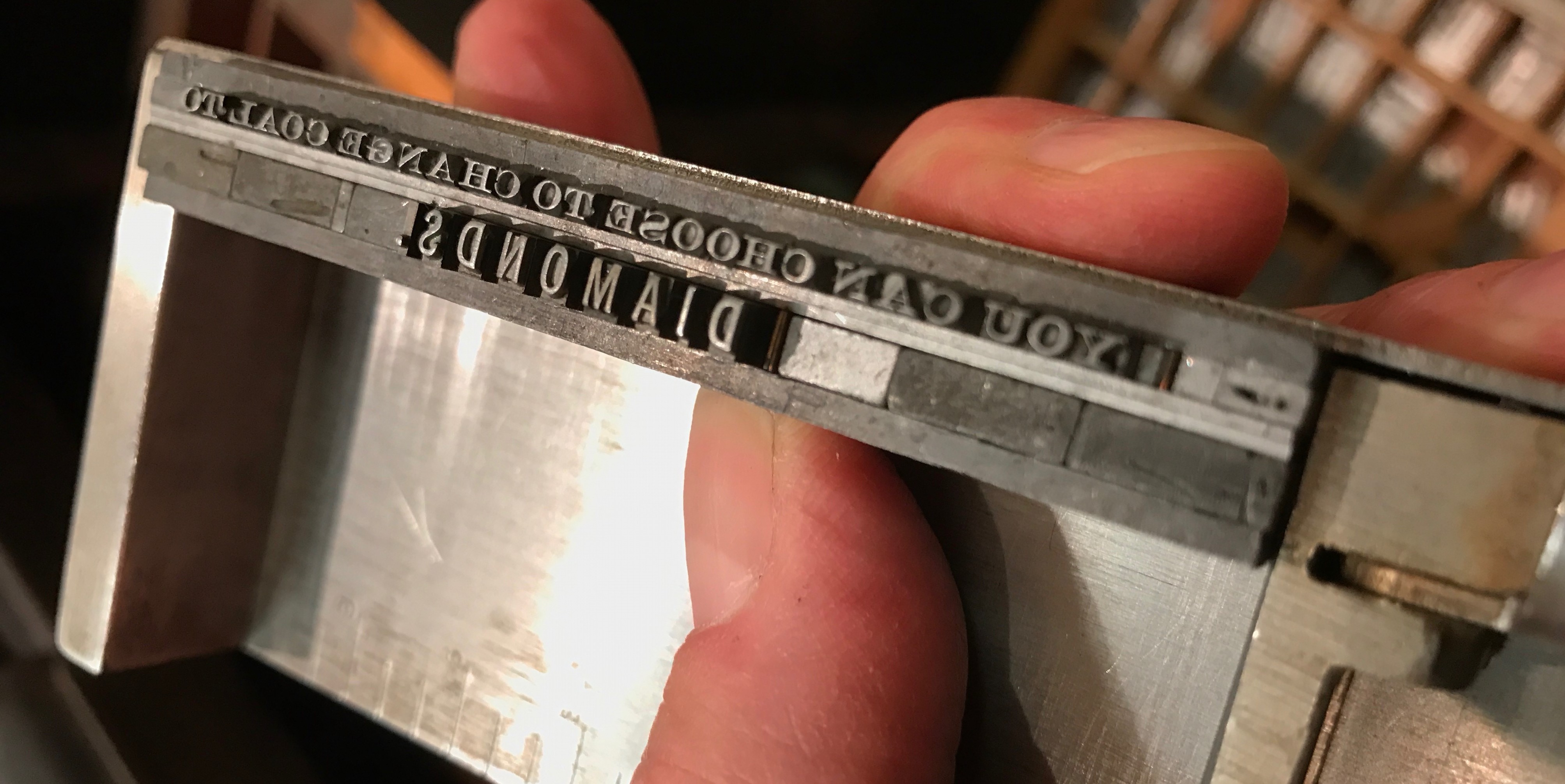
In week 1, we will also welcome three visiting scholars:
Dr. Karen Leader of the FAU Department of Art History will give a talk about visual culture and special collections.
Dr. Neil Weijer of the University of Florida Libraries will present a session on paleography and the art of marginalia.
Dr. Jesse Erickson of the University of Delaware will discuss ethnobibliography and African American printing in American history.
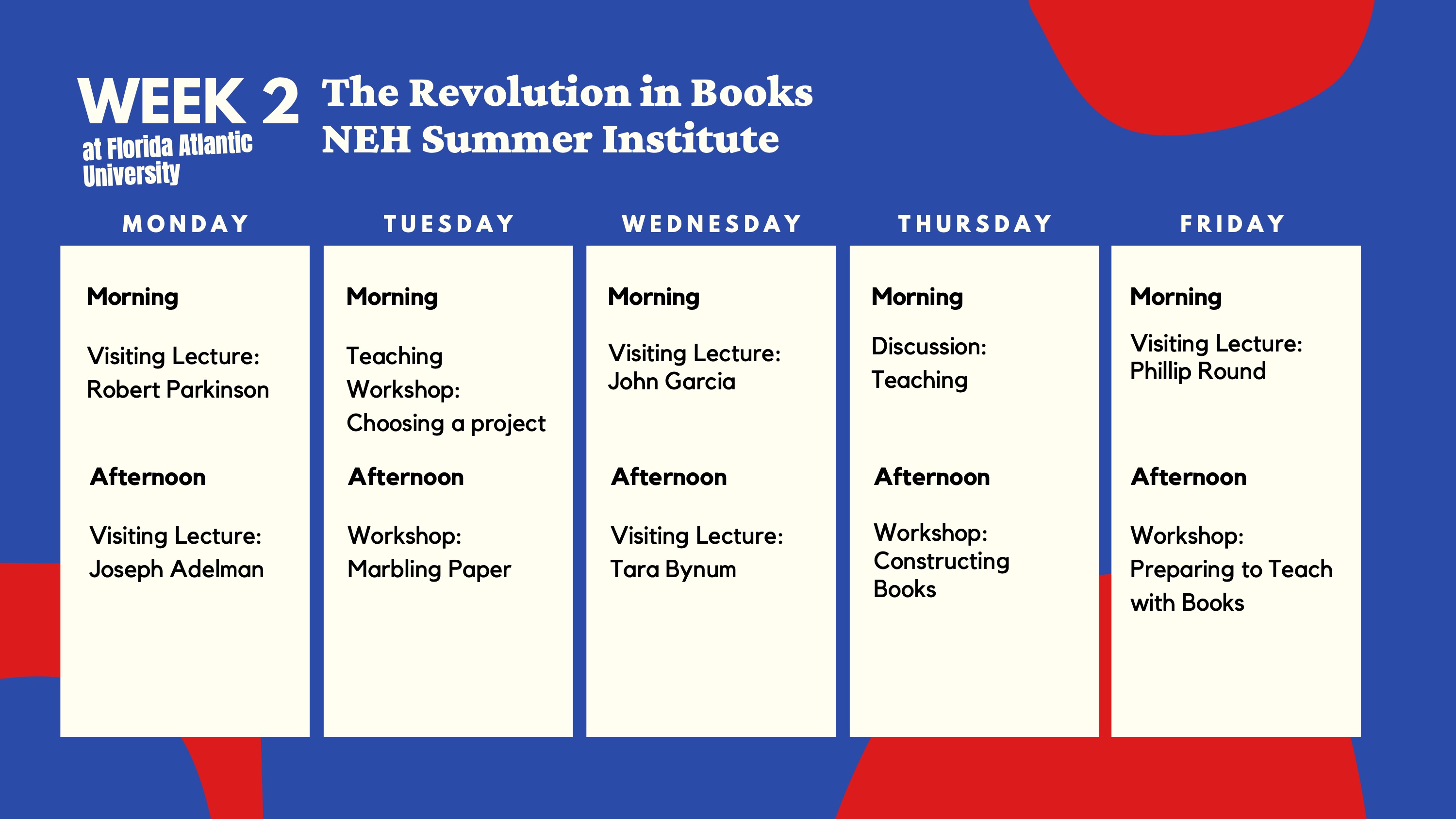
Week 2
In week 2, summer scholars will explore the production of books and newspapers in the Revolutionary period. This includes lectures and hands-on activities about the labor history of printing in early America, understanding the ways in which print and readership culture extended beyond the purview of the upper class. We will investigate the political and economic decisions of colonial printers and consider that printed objects were a product crafted by laborers, many indentured and enslaved. Participants will explore the ways that Revolutionary printing was the product of labor, how these products were read and by whom, and gain hands-on experience constructing small books of their own, learning the common binding of pamphlets, single signature binding and double signature. A workshop on marbling endpapers highlights the choices made by craftspeople. As the week closes, the combination of lectures and workshops culminates with the production of a small book with a hand sewn case binding.
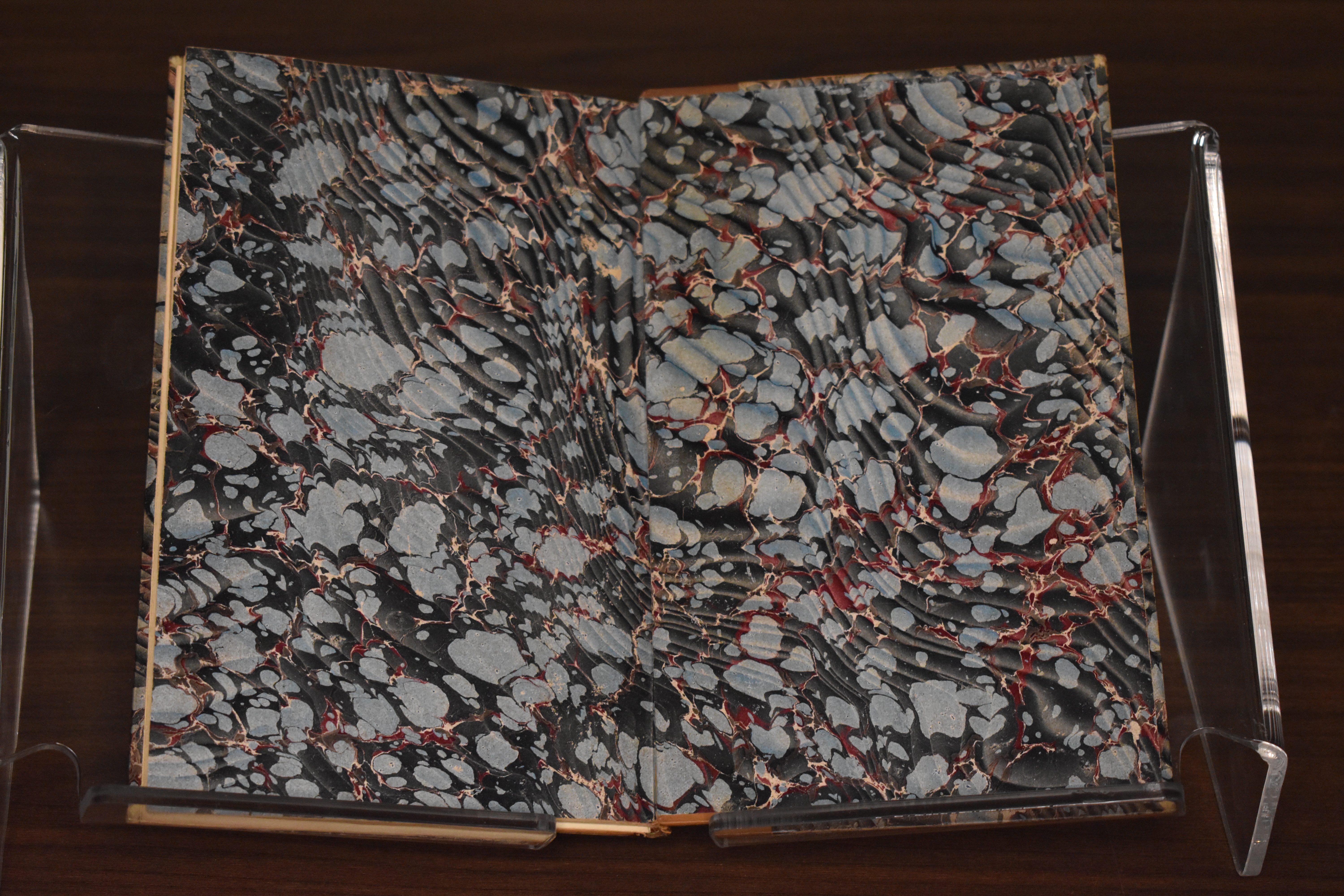
In week 2, we will be joined by five visiting scholars.
Dr. Robert Parkinson will discuss newspapers and the revolution.
Dr. Joseph Adelman will lead a presentation about the role of colonial printers in shaping Revolutionary ideology.
Dr. John Garcia will speak on the print cultures of patriots and loyalists.
Dr. Tara Bynum will share her work on reading culture among Black communities in the eighteenth century.
Dr. Phillip Round will lead a session about Indigenous North American print practices.
Week 3
Drawing on the previous weeks’ examination of the ways that the printings and bindings reveal how these texts were approached, read, and owned, Week 3 will focus on teaching. Participants will synthesize the theoretical and hands-on knowledge they have developed regarding the history and production of printed materials, including books, and think more concretely about how this material can be taught to students. The cohort will have had exposure to a range of primary materials and hands-on experiences creating books that will allow a deeper discussion into the role of digital primary resources. We will investigate how digital primary resources present challenges and opportunities for educating students about rare materials. As this week closes, the cohort will share their individual or group selection of materials, lesson plans, and presentations of their books and the lessons they have created.
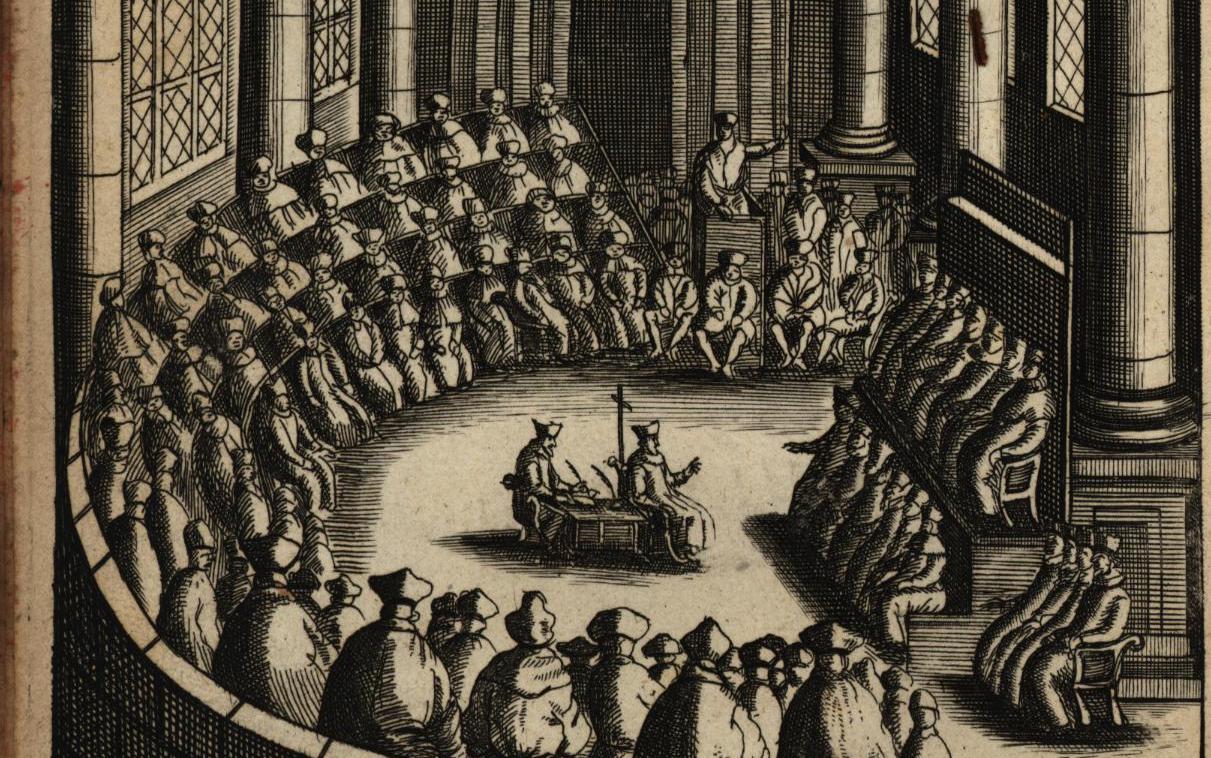
In Week 3, we will be joined by one visiting scholar, Dr. Lindsay Dicuirci, who will discuss how readers encountered Revolutionary-era books into the nineteenth century.
We will reconvene virtually August 4th and 5th of 2022 for a two-day Zoom-based conference where participants will present their fully-developed teaching materials after having time to fully reflect on their experiences.
Our reading list will be posted during the winter.
Note: Schedule and readings are subject to change.
